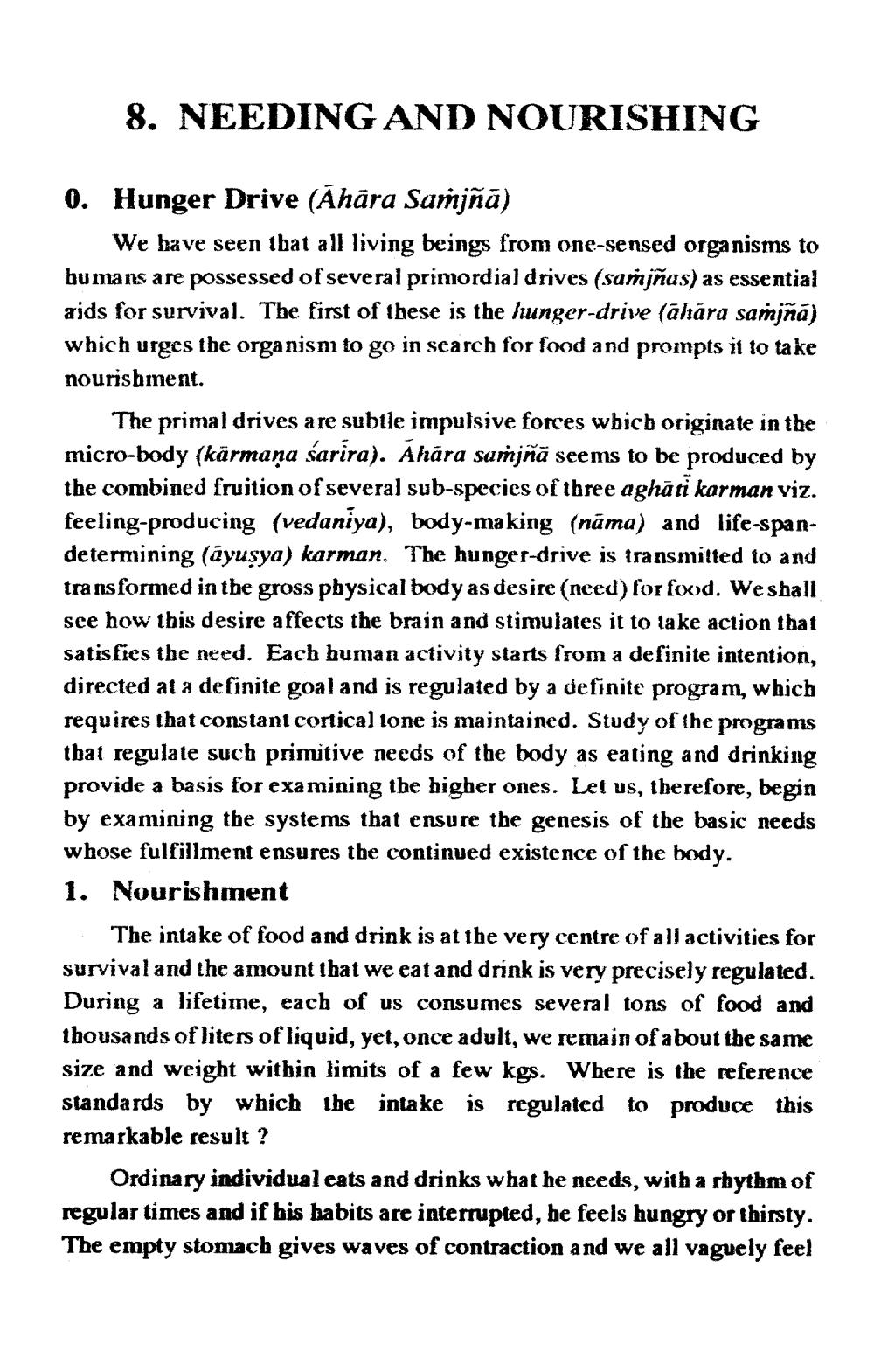________________
8. NEEDING AND NOURISHING
0. Hunger Drive (Ahāra Samjñā)
We have seen that all living beings from one-sensed organisms to humans are possessed of several primordial drives (samjñas) as essential aids for survival. The first of these is the hunger-drive (ahāra samjña) which urges the organism to go in search for food and prompts it to take nourishment.
The primal drives are subtle impulsive forces whicb originate in the micro-body (kärmaņa sarira). Ahāra saṁjñā seems to be produced by the combined fruition of several sub-species of three aghāti karman viz. feeling-producing (vedaniya), body-making (nāma) and life-spandetermining (ayusya) karman. The hunger-drive is transmitted to and transformed in the gross physical body as desire (need) for food. We shall see how this desire affects the brain and stimulates it to take action that satisfies the need. Each human activity starts from a definite intention, directed at a definite goal and is regulated by a definite program, which requires that constant cortical tone is maintained. Study of the programs that regulate such primitive needs of the body as eating and drinking provide a basis for examining the higher ones. Let us, therefore, begin by examining the systems that ensure the genesis of the basic needs whose fulfillment ensures the continued existence of the body. 1. Nourishment
The intake of food and drink is at the very centre of all activities for survival and the amount that we eat and drink is very precisely regulated. During a lifetime, each of us consumes several tons of food and thousands of liters of liquid, yet, once adult, we remain of about the same size and weight within limits of a few kgs. Where is the reference standards by which the intake is regulated to produce this remarkable result ?
Ordinary individual eats and drinks what he needs, with a rhythm of regular times and if his habits are interrupted, he feels hungry or thirsty. The empty stomach gives waves of contraction and we all vaguely feel




